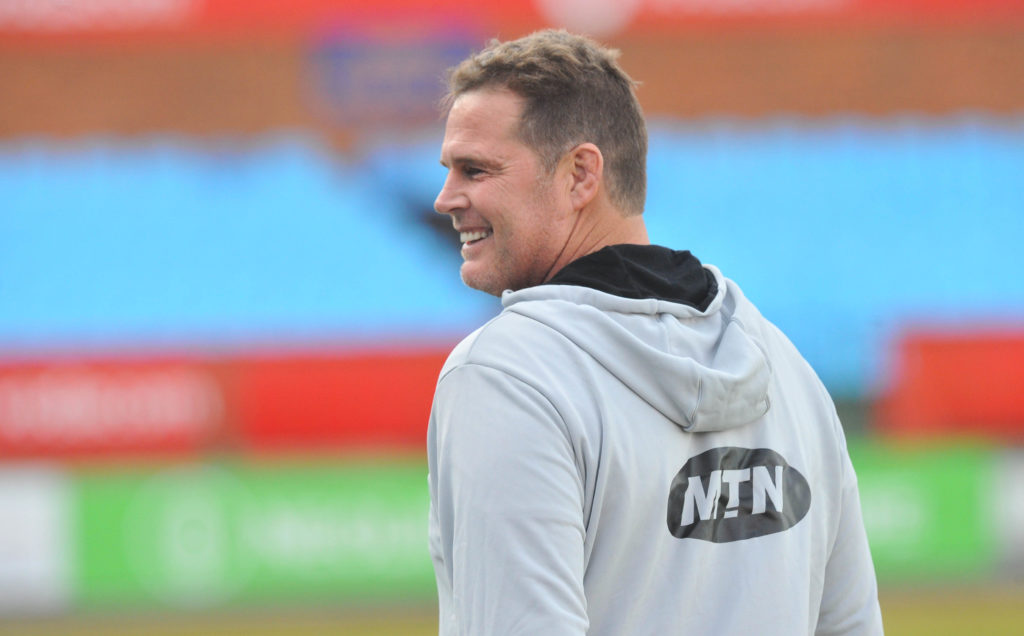In 2007, Pierre Spies was forced to withdraw from the squad after blood clots were detected on his lungs. In 2011, Bath-based Francois Louw was an unexpected inclusion in the group selected to travel to New Zealand.
In 2015, Cobus Reinach and Marcell Coetzee were overlooked despite featuring prominently for the Boks in previous seasons. After a lengthy back and forth between the player and management, the move to include World Cup-winner Frans Steyn failed.
This time around, all the drama has unfolded outside the Bok camp.
On Saturday, Aphiwe Dyantyi – who was expected to miss the World Cup due to an ongoing struggle with a hamstring injury – confirmed that he had tested positive for a banned substance. The star wing protested his innocence and said that he would fight to clear his name.
On Sunday, it was alleged that Eben Etzebeth was involved in an incident in Langebaan. The Bok lock subsequently took to Facebook to state that the allegations of assault and racial abuse were unfounded.
The actual announcement of the 31-man squad, however, did not feature any major shocks or surprises. There may be some concern regarding the lack of a second specialist blindside and a third specialist flyhalf, but otherwise it’s a well-balanced group with a host of good options.
Dyantyi was the World Breakthrough Player of the Year in 2018. The Boks could certainly have used his speed and explosive power at the tournament in Japan.
We’ve known since the last Test against Argentina, though, that the wing was unlikely to make the 31-man cut. Erasmus confirmed as much at the post-match media conference in Pretoria.
Etzebeth has denied the allegations against him and his inclusion in the 31-man squad suggests that the Bok management team is confident about his innocence. If anything were to change between now and the start of the tournament, one would expect Erasmus to bring another lock such as Marvin Orie into the mix.
Erasmus has been transparent about his thought process in the lead-up to the announcement. The only debate that’s followed the last Test on 17 August is which one of Rynhardt Elstadt, Warrick Gelant and Kwagga Smith would drop out when the Bok coach reduced the group from 32 to 31.
Elstadt, who was brought into the Bok camp ahead of the recent Rugby Championship and subsequently earned two caps, is the man deemed surplus to requirements. The flank-cum-lock – and others on the shortlist – may yet feature in the event of injuries at a tournament that will span seven gruelling weeks.
Erasmus has opted for a conventional 17-14 split between forwards and backs. There may be some debate about the tighthead group, given that Vincent Koch only rejoined the Boks in late 2018 and Frans Malherbe has battled for form of late.
It’s fair to say that these players, along with the much-improved Trevor Nyakane – who will cover loosehead and tighthead in Japan – deserve their places ahead of Wilco Louw and Thomas du Toit.
Overall, it is a strong group of forwards. Four locks have been included, a move which should allow Pieter-Steph du Toit to focus on his best position of blindside flank.
Siya Kolisi – who will become the first black African to lead the side at the World Cup – will feature in a first-choice back row that includes Du Toit and another leader in Duane Vermeulen. Francois Louw has the ability to cover all three back-row positions, while Kwagga Smith may provide an openside alternative and possibly even an impact option from the bench.
The Boks won’t follow England or Australia’s lead and gamble with two specialist scrumhalves in the group of 31. Faf de Klerk, Herschel Jantjies and Cobus Reinach will all travel to Japan.
Steyn looks set to cover several positions. While Erasmus feels that the veteran’s best position is No 12, Steyn may have to slot in at flyhalf or even fullback if the first- and second-choice options are unavailable.
Gelant will provide cover for Willie le Roux at fullback. His inclusion should allow Cheslin Kolbe to focus on his responsibility as a wing. The Toulouse star has made an impact for the Boks over the past two seasons.
Erasmus has opted for a group that is – for the most part – light on World Cup experience.
Steyn, Louw and Beast Mtawarira featured at the 2011 World Cup. Le Roux, Damian de Allende, Jesse Kriel, Handre Pollard, Du Toit, Kolisi, Vermeulen, Lood de Jager, Etzebeth, Schalk Brits, Malherbe and Nyakane were part of the group that travelled to England four years ago.
The other 16 players in the current squad have never been at a World Cup before. As many as 12 of the 16 made their Test debuts in period between the start of the 2016 season and 2019 Rugby Championship.
Erasmus has managed to strike the right balance between youth and experience in recent matches, though. As we’ve seen at previous tournaments, the Bok will need a mix of both to be successful in Japan.
SA Rugby has made it clear since the latter stages of 2014 that it hoped to see a side that is 50% black and 50% white travelling to the 2019 World Cup. Transformation has been a priority for Erasmus since he came to power in 2018.
SA Rugby president Mark Alexander recently declared that he was satisfied with the national team’s progress in this regard. The 31-man squad features 12 players of colour – which is three more than were included in the group that travelled to the 2015 World Cup in England.
Photo: Sydney Mahlangu/BackpagePix





